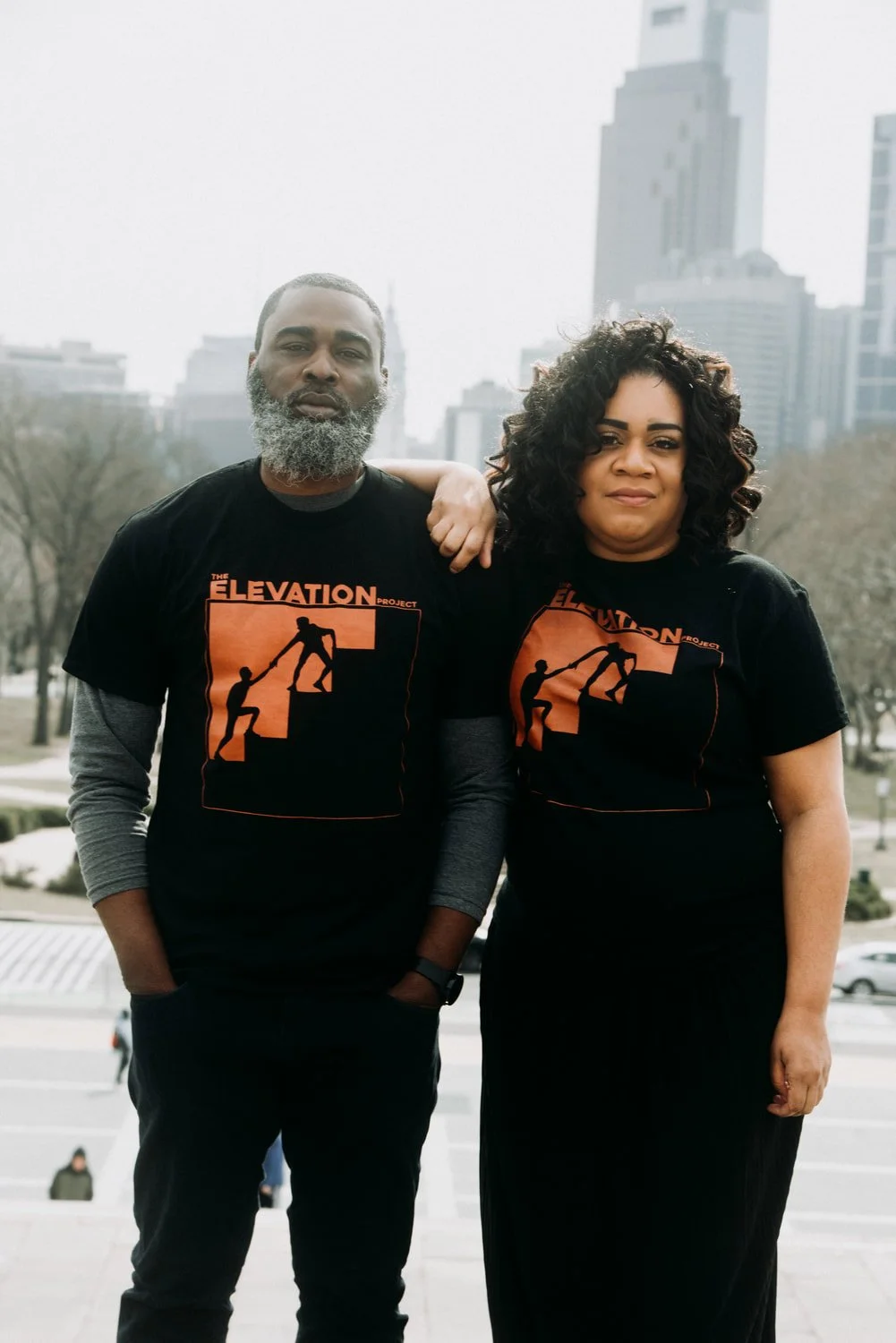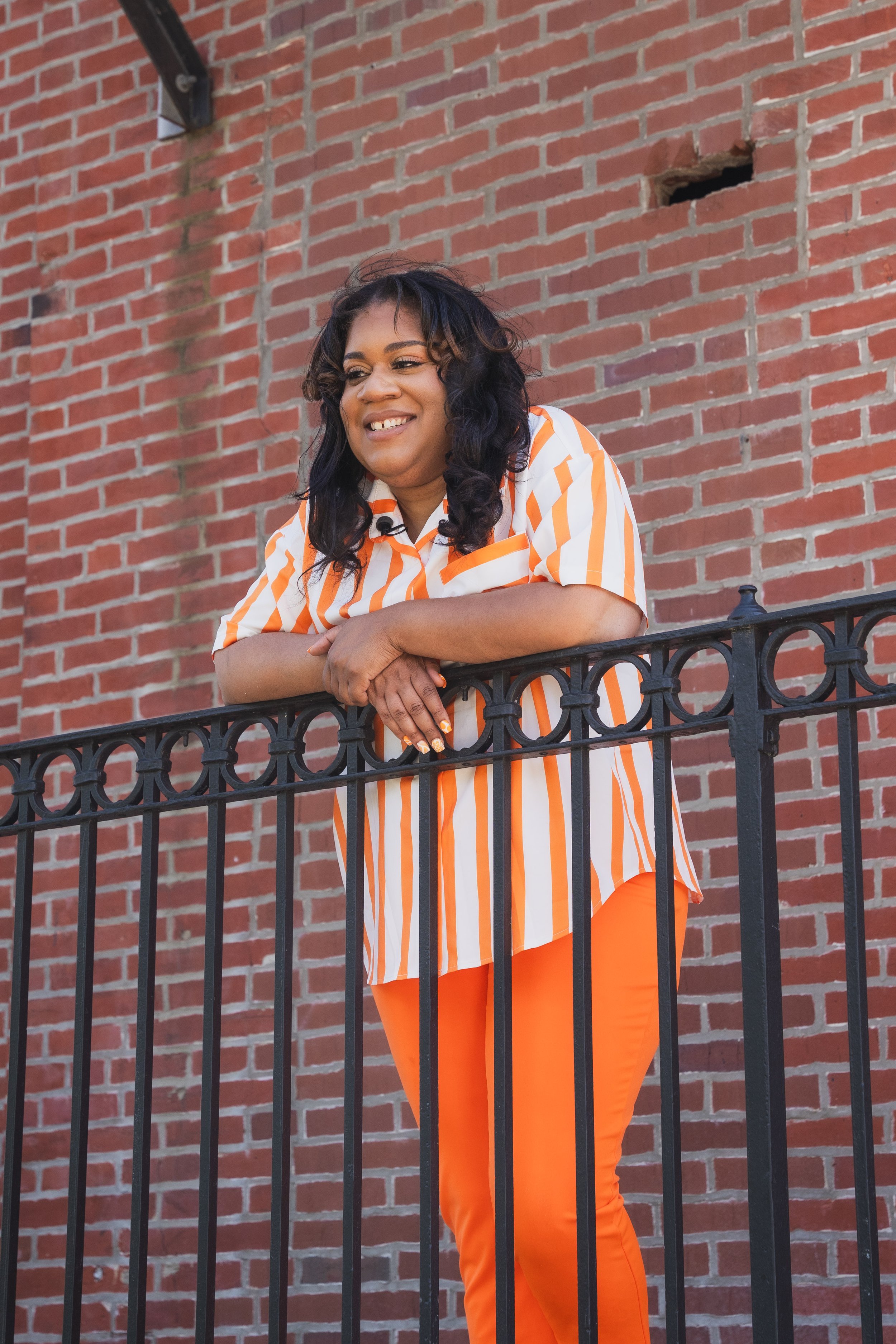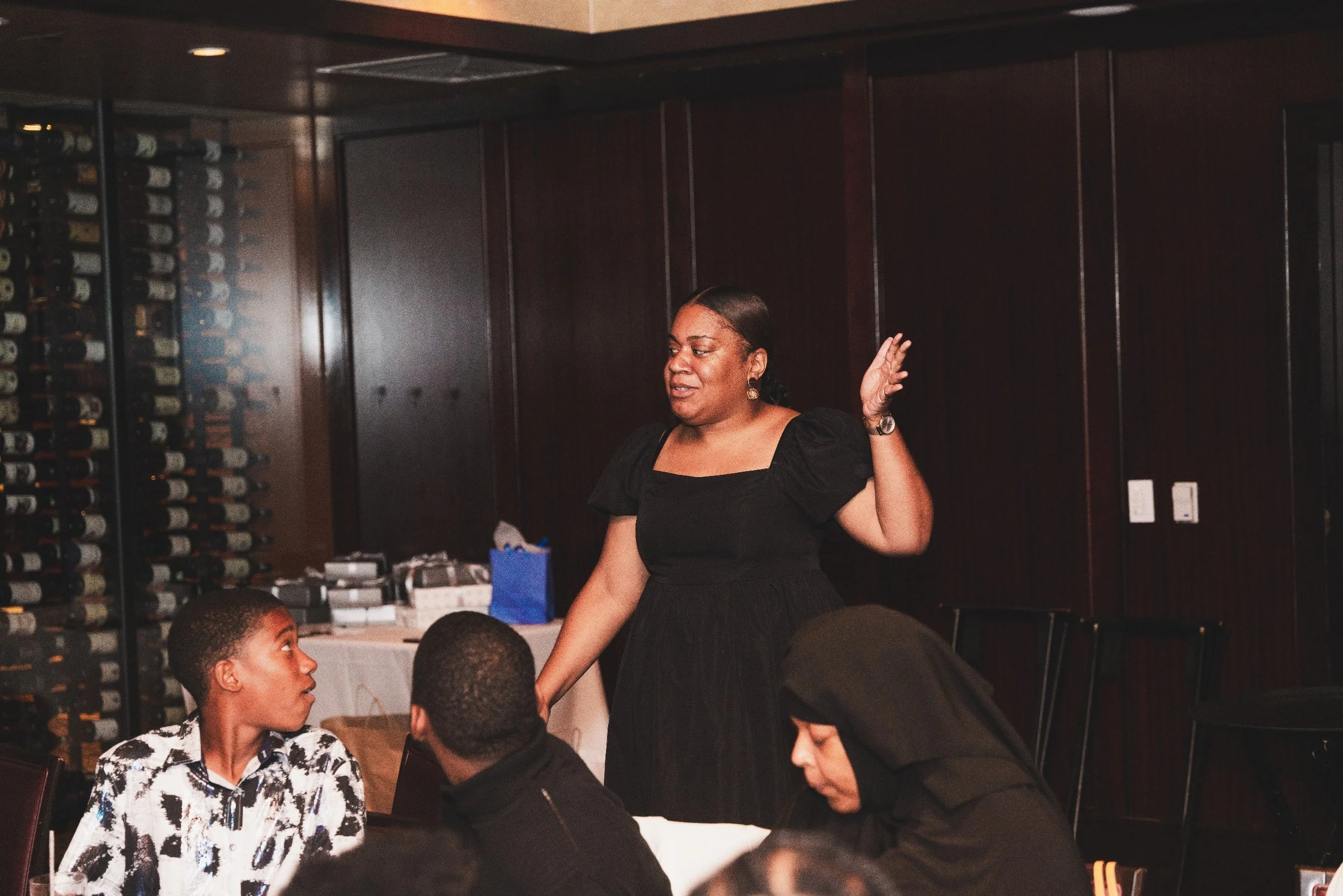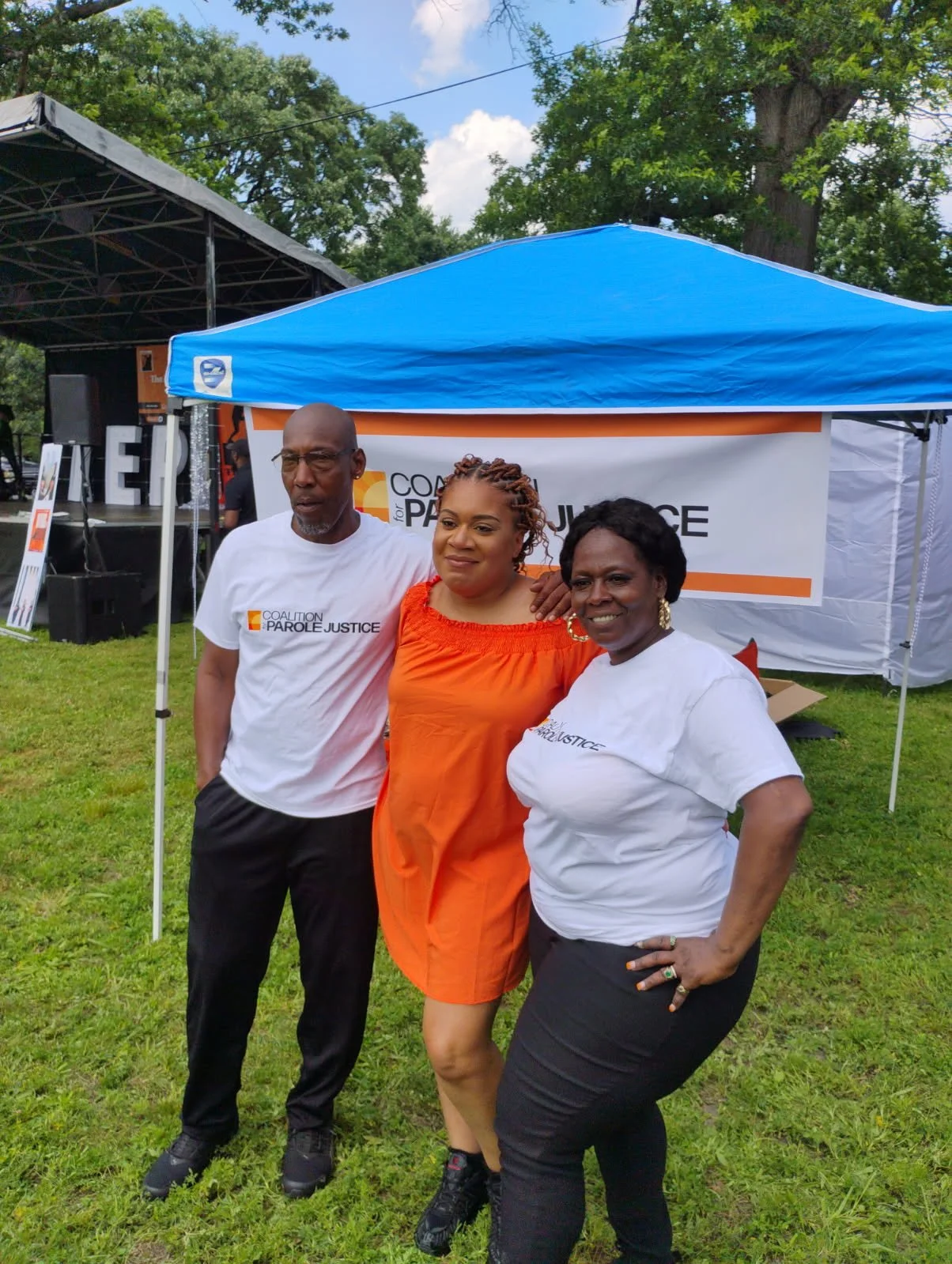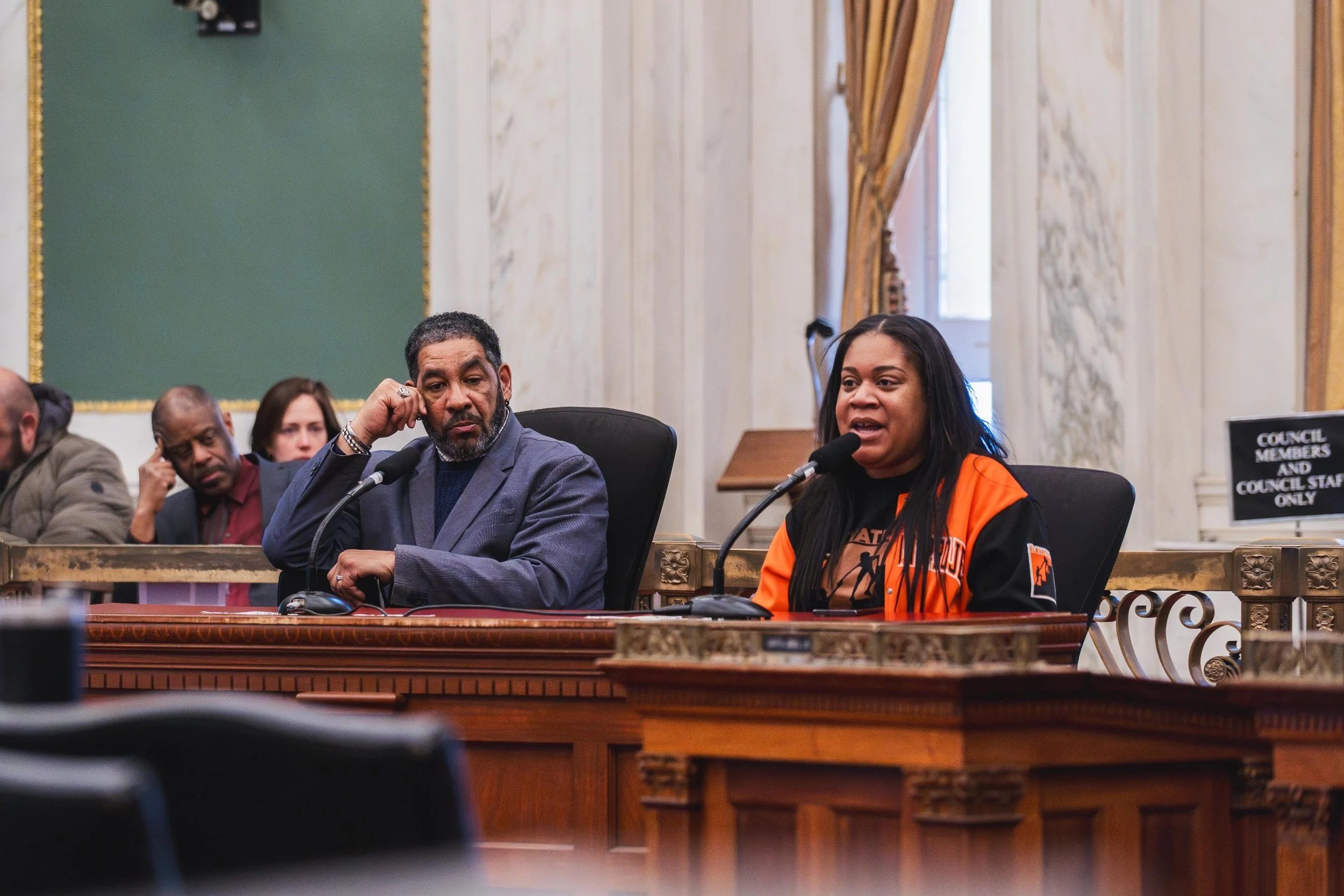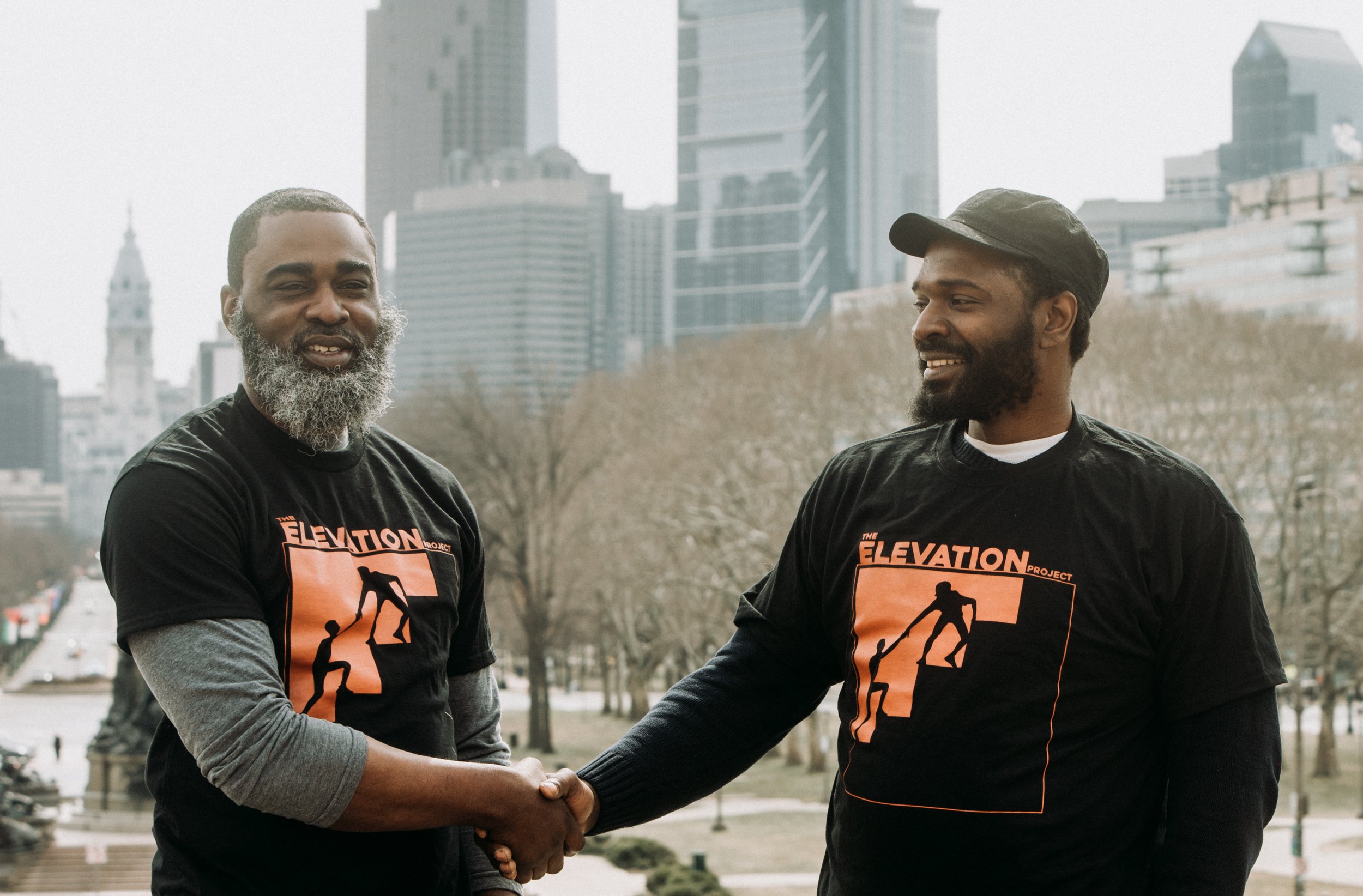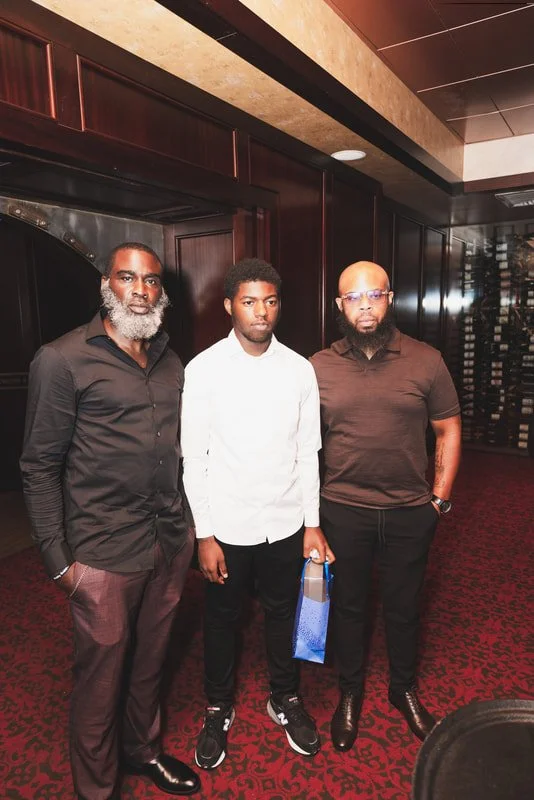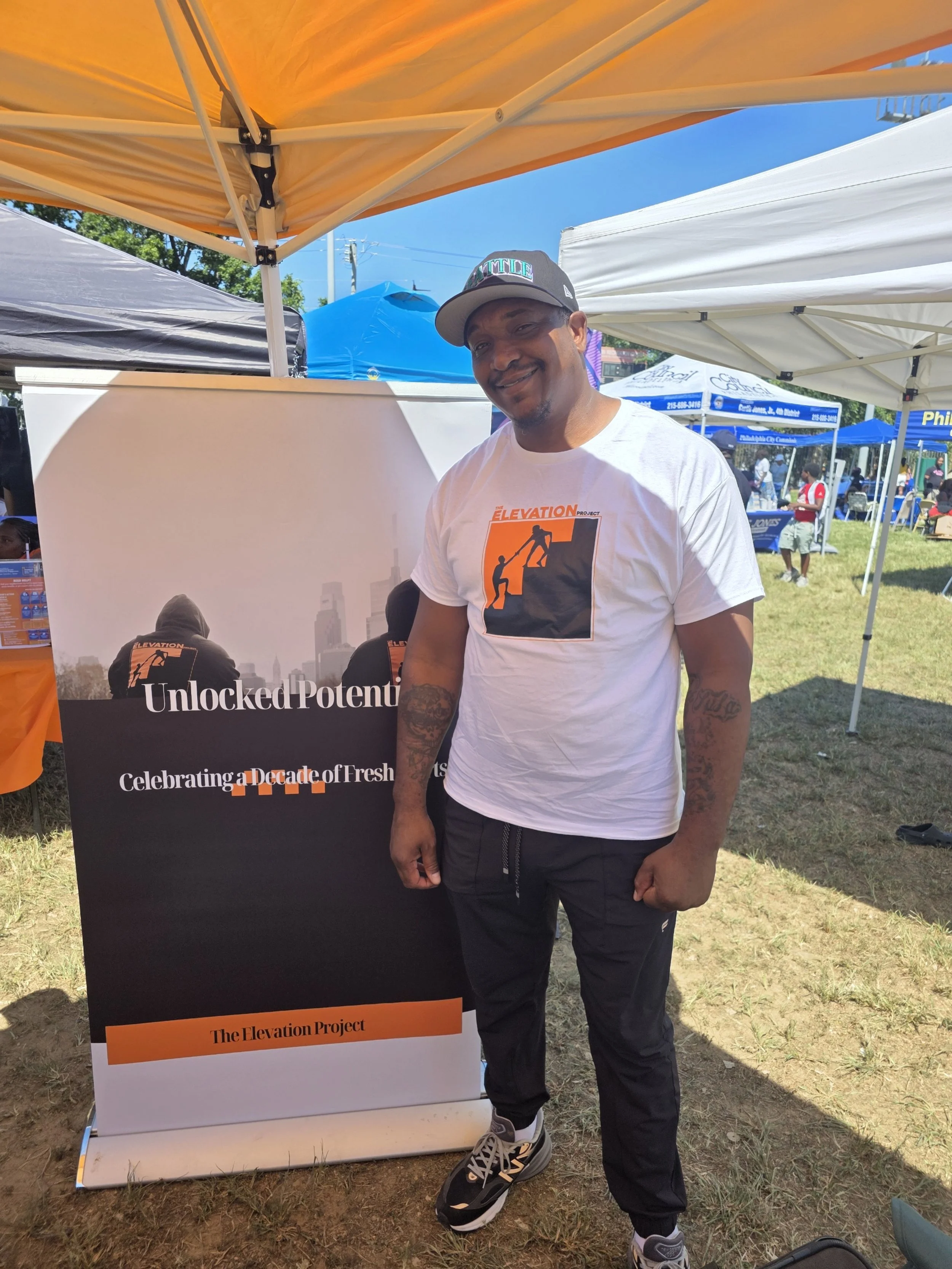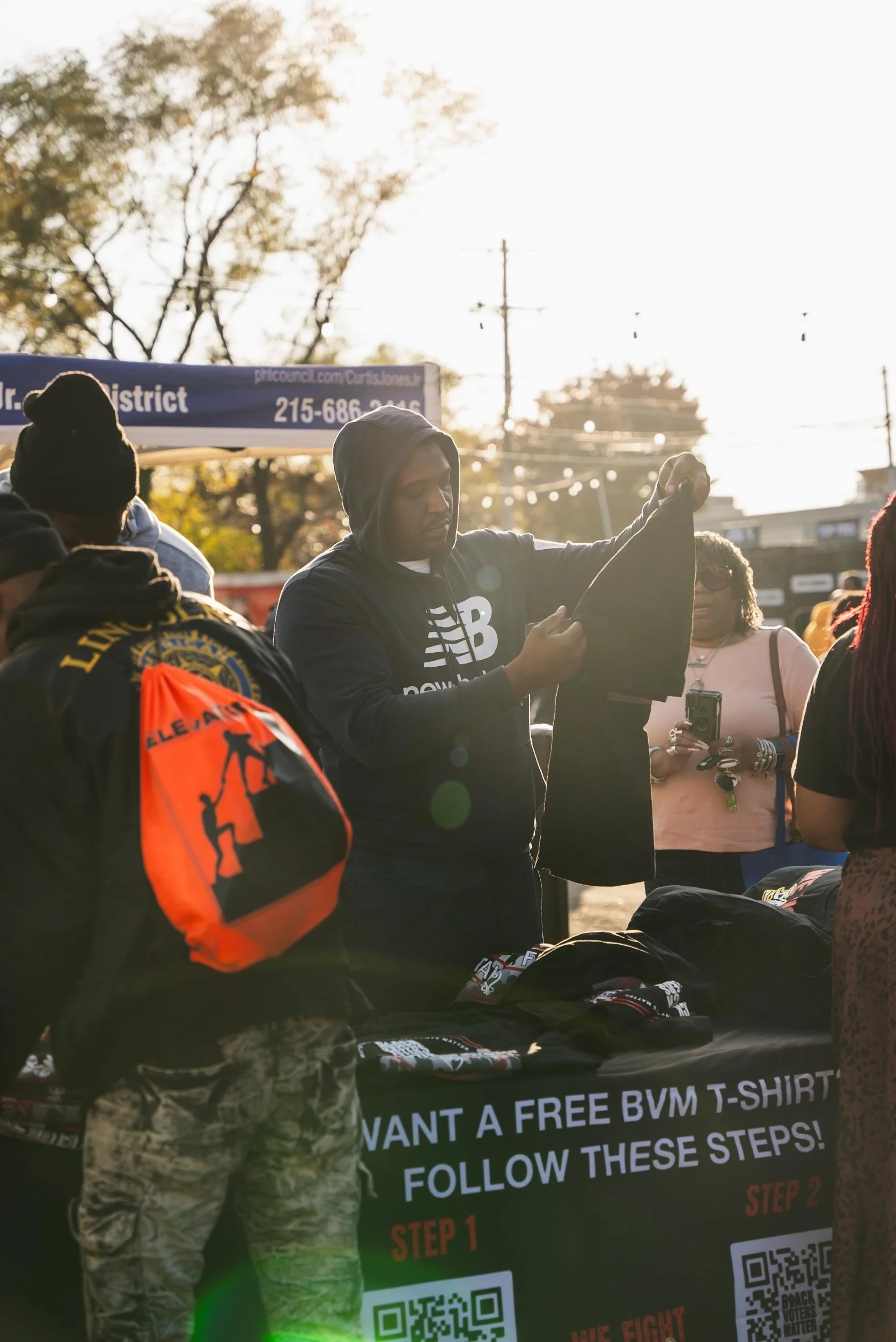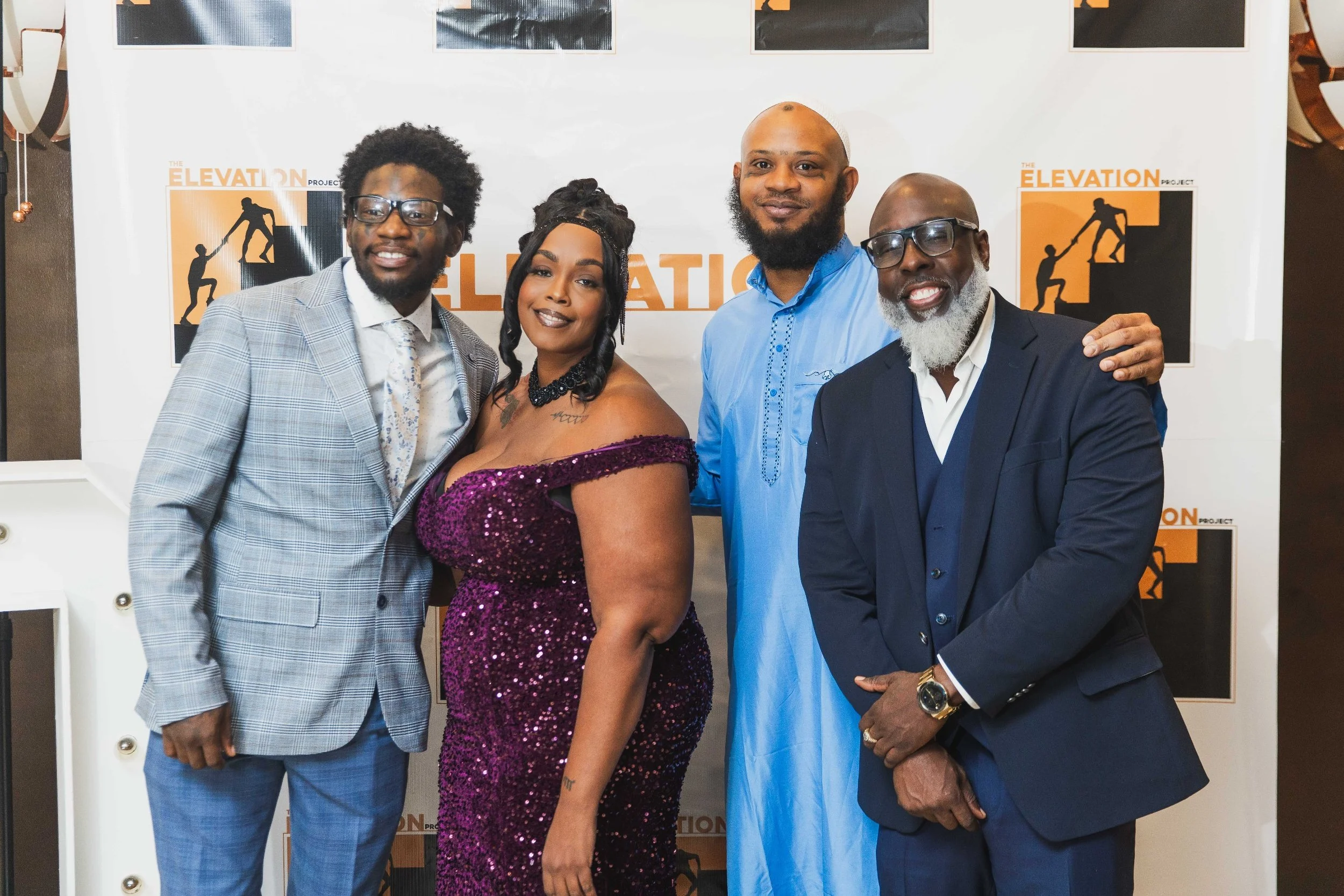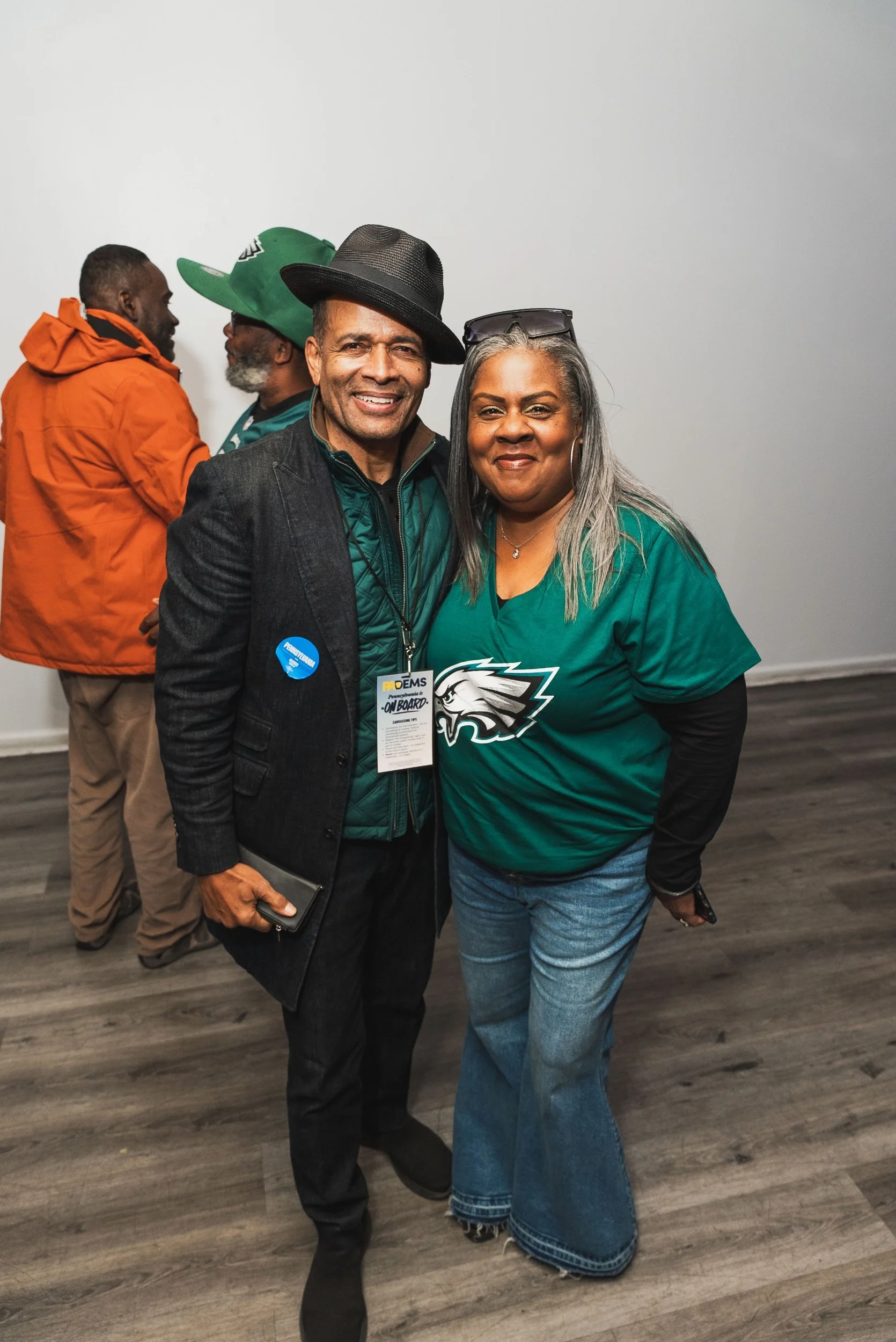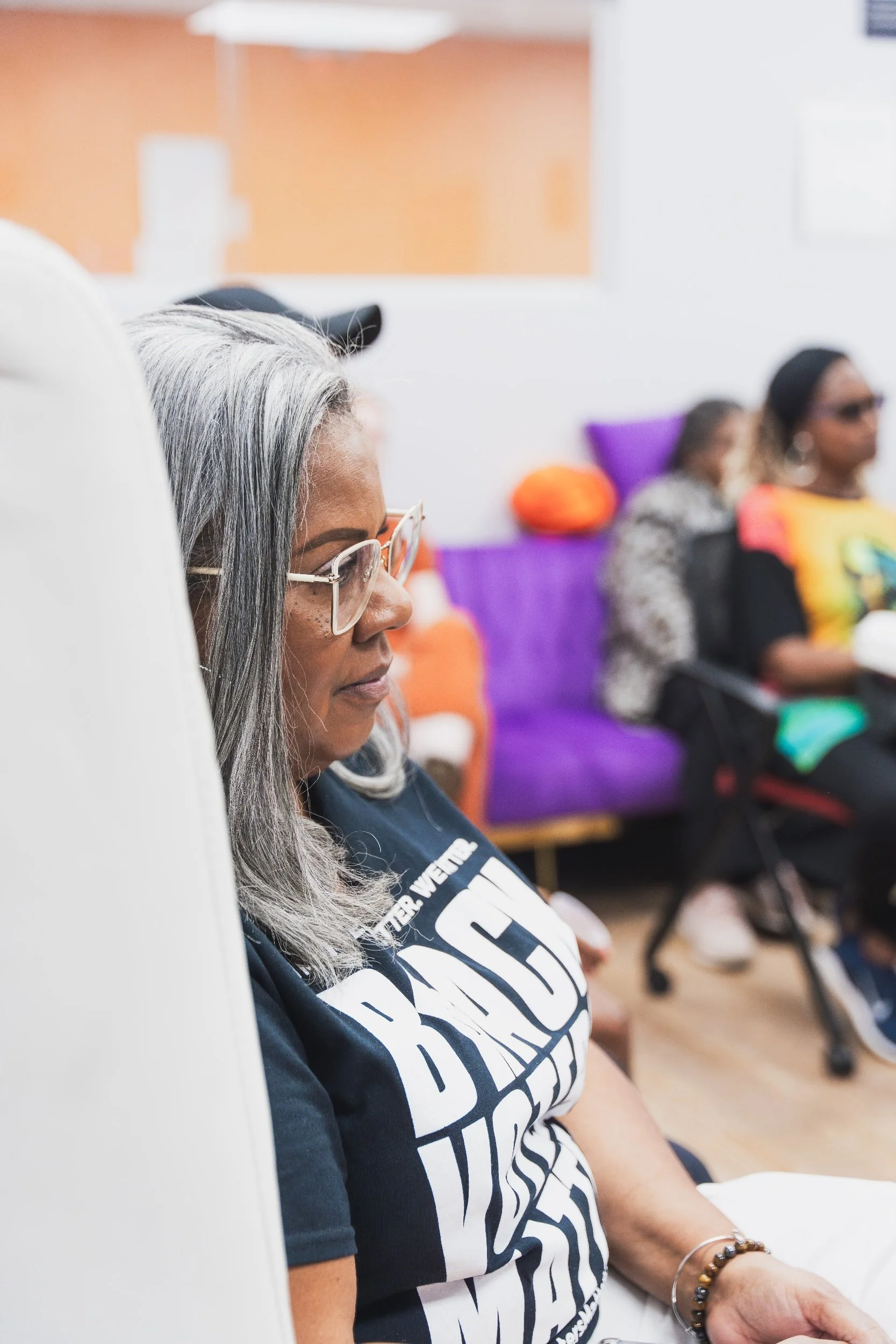about us
The Elevation Project began in 2015 as more than a nonprofit; it was personal. Co-founded by LaTrista Webb and James Smith, the organization was born at the intersection of lived experience, systemic injustice, and an unshakable belief that people deserve more than punishment — they deserve possibility.
LaTrista had been studying mass incarceration when life made the work deeply personal. James was incarcerated, but far from idle. From inside, he was building, writing, and designing ideas that would later become the foundation of The Elevation Project’s programming.
Together — from opposite sides of the prison walls and from two very different backgrounds LaTrista and James created something rare: a reentry and justice reform organization built by and for people most impacted by the system.
OUR FOUNDERS
LaTrista T. Webb
Thought Leader
Criminal Justice Reform Advocate
Systems Disruptor
LaTrista T. Webb is a visionary leader and nationally recognized advocate for criminal justice reform. As the Founder and Executive Director of The Elevation Project, she has redefined what reentry looks like--turning another chance into real opportunities for individuals impacted by the justice system. A fearless strategist and public voice, LaTrista challenges outdated policies, mobilizes communities, and works to dismantle systemic barriers that perpetuate cycles of incarceration.
Shaping the National Conversation on Justice Reform
LaTrista is at the forefront of redefining reentry and public safety, amplifying voices that are too often silenced. Through her work with The Elevation Project, she has pioneered innovative programs, policy initiatives, and media campaigns that don’t just rehabilitate individuals—they shift societal perceptions and demand systemic change. Her impact has been featured on major media platforms, positioning her as a trusted expert on justice reform, reentry solutions, and economic empowerment for returning citizens.
A Force for Change & Policy Innovation
With a background in forensic social work, LaTrista brings both lived experience and academic expertise to the fight for equity in the criminal justice system. She collaborates with policymakers, legal professionals, and grassroots movements to advocate for sentencing reform, Clean Slate policies, and economic justice for system-impacted individuals. Her leadership extends beyond direct service—she is reshaping public policy to create real, lasting change.
Sought-After Speaker & Media Contributor
A compelling storyteller and thought leader, LaTrista is a sought-after speaker for national conferences, panels, and media outlets covering justice reform. She has been invited to speak on the intersection of reentry, economic mobility, and racial justice, offering bold insights that challenge the status quo. Whether testifying before policymakers, engaging with journalists, or speaking to national audiences, her voice is a catalyst for courageous conversations and transformative action.
Redefining What’s Possible
LaTrista’s work is a testament to what’s possible when systems are challenged and communities are empowered. Through her relentless advocacy, strategic vision, and ability to mobilize movements, she is leading the charge for a more just, equitable, and restorative future.
For media inquiries or speaking engagements, contact: Rachel McCrae
James A. Smith
Entrepreneur
Reentry Leader
Justice System Disruptor
James Smith is a respected business owner, mentor, and voice for reentry transformation, whose journey from incarceration to entrepreneurship serves as a powerful example of resilience and purpose. After spending 17 years in a Pennsylvania State Correctional Institution, James returned home determined to build a better future—not just for himself, but for others walking a similar path.
He is the founder of HLS Moving and Hauling Company, a thriving business named in honor of his late mother, whose memory continues to inspire his work. Today, James serves as a guiding presence at The Elevation Project, where he serves as the Director of Reentry & Strategic Initiatives. His leadership is rooted in lived experience, and his impact is felt in every quiet moment of encouragement and every bold example he sets.
Known as a “silent force”, James is deeply respected for his ability to lead with humility, integrity, and quiet strength. He is a steady presence in the lives of justice-impacted individuals, offering not just practical support but a living example of what’s possible after incarceration. He often reminds young people, “It’s easy to go to jail, but hard to get out”—a reminder of the stakes, and the need for systems that support redemption.
James Smith continues to shape the future of reentry by building businesses, mentoring change-makers, and showing that chances aren’t just possible—they’re powerful.
For media inquiries or speaking engagements, contact: Rachel McCrae
our staff
Donald Brown brings over two decades of lived experience within the prison system to his role as Prison Outreach Coordinator. After serving more than 20 years incarcerated, Donald returned home determined to turn his resilience, discipline, and commitment to community into meaningful change.
In his position, Donald provides guidance, advocacy, and resources for justice-impacted individuals navigating reentry. His firsthand knowledge of the challenges people face after incarceration allows him to connect with participants on a deeper level, offering both practical solutions and personal encouragement.
Beyond his work in reentry, Donald is the proud owner of Doobie Bro’s BBQ, a growing food business known for its bold flavors and authentic, slow-smoked style. His journey from incarceration to entrepreneurship is a testament to his belief that second chances aren’t just possible—they’re powerful.
Donald’s life’s work reflects his mission: to help others rebuild, reclaim their futures, and create opportunities where they once seemed impossible.
Imani Dixon serves as the Case Manager at The Elevation Project, where she supports justice-impacted individuals as they navigate reentry, stability, and long-term success. Though new to the organization, Imani has quickly become a trusted presence for participants, known for her ability to meet people where they are and build meaningful, respectful relationships.
With a background in public health, Imani brings a systems-focused approach to her work, specializing in connecting participants to critical services and community-based resources. She works closely with individuals to identify barriers, coordinate referrals, and ensure they are linked to the housing, employment, education, and wellness supports they need to move forward.
Imani’s approach is rooted in dignity, consistency, and accountability. She believes that access to the right systems at the right time can change the trajectory of a person’s life, and she is committed to walking alongside participants as they build stability, confidence, and opportunity.
Rhonda Ganges serves as the Office Manager at The Elevation Project, where she leads the organization’s operational infrastructure and ensures the day-to-day work runs with excellence, accountability, and care. She oversees administrative systems, financial processes, compliance, and internal workflows that allow the team to stay focused on delivering high-quality programs and community impact.
Rhonda is known for her precision, consistency, and deep sense of responsibility to the mission. She brings structure to fast-moving work, creating systems that support staff, protect participants, and strengthen organizational sustainability. Whether managing finances, coordinating events, or maintaining internal operations, Rhonda ensures that every detail is handled with integrity.
At the heart of her work is a commitment to service and stewardship. Rhonda understands that strong operations are not just about efficiency — they are about building trust with funders, partners, and the community. Her leadership helps ensure that The Elevation Project remains a stable, credible, and accountable home for justice-impacted individuals and their families.

